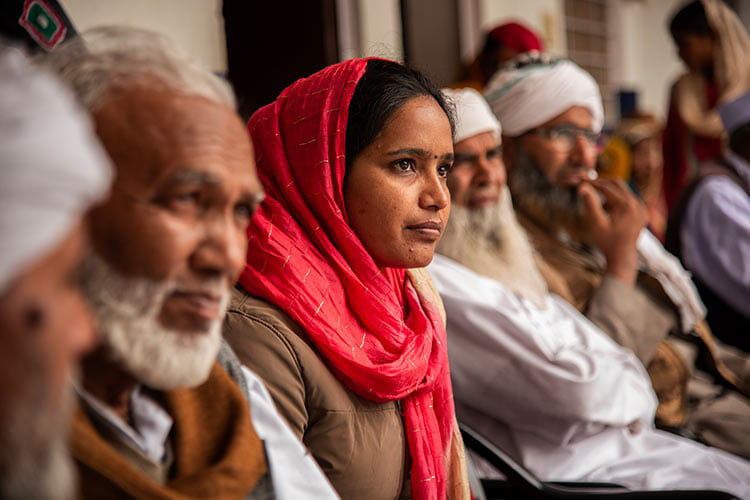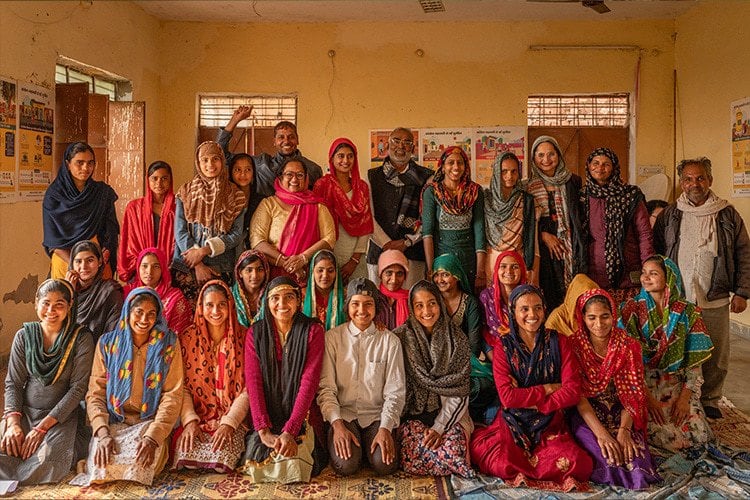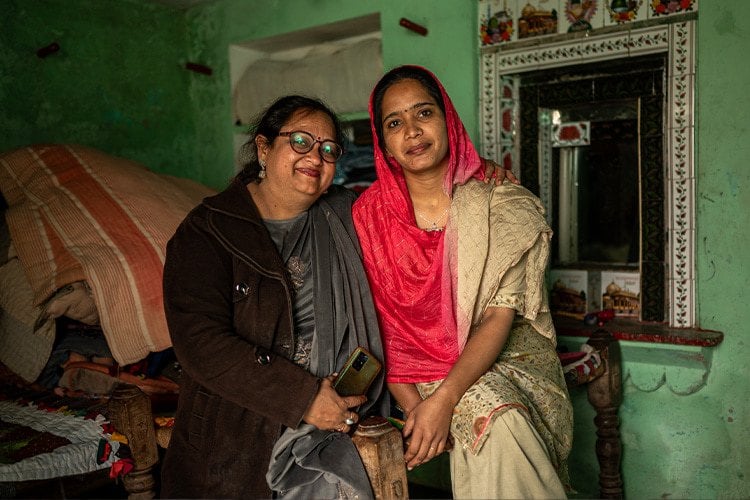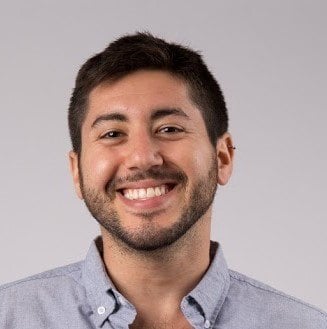
Today, 25-year-old Shabnam Khan is a minor celebrity in Mewat — a rural region of Rajasthan home to Muslim and Dalit (lowest caste) communities. Her claim to fame? She is the first woman from the region to become an engineer. She’s respected by men and a beloved role model to women. But her journey wasn’t an easy path.
Shabnam grew up with five brothers and sisters, and didn’t attend school as a child. She fondly remembers a childhood of collecting firewood and picking fruits — but what she really wanted was out of reach. While her brothers studied, the girls in Shabnam’s family were all but banned from school. In her community, it’s commonly believed girls are meant for marriage, and an education will cause girls to run away, interact with boys and cast off their Muslim faith.
But when AJWS grantee Alwar Mewat Institute of Education and Development (AMIED) entered her village, a door opened that would change Shabnam’s life.
In its two decades, AMIED has supported over 15,000 girls in Mewat to re-enroll (or enroll for the first time) in school through local education support centers and ‘bridge courses,’ or intensive courses to help girls catch up on years lost. Shabnam’s father supported her dream — but insisted they keep it a secret, so as not to raise suspicion with their neighbors. After years of rare and inconsistent education, Shabnam caught up to a 5th grade education in only months in an AMIED bridge course. She didn’t stop there. Shabnam continued through 12th grade into college, and studied to become a civil engineer. Her secret was out.
For AMIED founder Noor Mohammad, reshaping Indian society so girls and young women can express their life dreams and goals, instead of keeping them hidden, is entirely the point. Through AMIED’s grassroots community work, not only have girls re-enrolled in school; over 1,000 have gone on to college.

AMIED’s core belief is that education is more than just a gateway to careers; it’s critical to empowering girls and young women to stand up for themselves — in their families and villages, and in the face of India’s overwhelmingly patriarchal society. Girls who have gone through AMIED’s educational support programs are now successfully fending off family pressure to marry early, and dismantling the very social constructs that kept them shackled to housework and childrearing for generations.
And this work, he says, has been made possible through a long, trusting bond with AJWS.
“Our relationship with AJWS has always been a joint initiative. This wasn’t just about giving us money; it is a true partnership. With AJWS, we never felt boundaries or limitations to dream about the change we wanted to make. We felt openness and support. It’s that openness that led to the results we’ve achieved,” says Noor, proudly.
“And just look at the impact we’ve had together. We are stopping child labor, exploitation and marriages. We are seeing girls enroll in colleges. These are achievements that would have seemed impossible only a few years ago. And now, this is our reality in Mewat.”

For Shabnam, what was once an impossible dream is now real life.
Today, she is an engineer in India’s water resource department, overseeing rural construction projects run by the state. She lives in Alwar, the city nearest her village, with two other unmarried friends — a fact she says with pride. When she returns to her village to visit her family, she’s swarmed by girls who want to be just like her.
“Every girl deserves an education. It’s education that makes you realize your life is not limited to the four walls of your family home,” she says. “AMIED took me outside what I thought was possible. They are the root of the tree of my life. If AMIED weren’t here, rooting me in what I want and believe, I wouldn’t be standing firmly where I am.”

